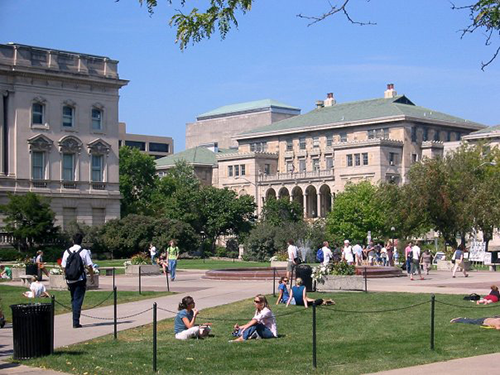Oct 05 2015 Newly announced MetroLab Network brings cities, universities into partnership
 A newly announced White House initiative, dubbed the MetroLab Network, aims to improve American cities through cross-sector partnerships between city governments and universities. The Network is part of a new $160 million Smart Cities Initiative that brings federal research dollars and dozens of new tech-driven collaborations to the task of helping cities address problems from resilience to transportation, NextCity recently reported.
A newly announced White House initiative, dubbed the MetroLab Network, aims to improve American cities through cross-sector partnerships between city governments and universities. The Network is part of a new $160 million Smart Cities Initiative that brings federal research dollars and dozens of new tech-driven collaborations to the task of helping cities address problems from resilience to transportation, NextCity recently reported.
The Smart Cities Initiative stems from the administration’s pledge to leverage federal resources to “support community-led solutions,” according to press release detailing the program, as well as a focus on cross-sector approaches. The aim is for local communities to address challenges such as “reducing traffic congestion, fighting crime, fostering economic growth, managing the effects of a changing climate, and improving the delivery of city services” by leveraging data and research collaborations.
“Every community is different, with different needs and different approaches,” said President Barack Obama. “But communities that are making the most progress on these issues have some things in common. They don’t look for a single silver bullet; instead they bring together local government and non-profits and businesses and teachers and parents around a shared goal.”
“Communities that are making the most progress on these issues … don’t look for a single silver bullet; instead they bring together local government and non-profits and businesses and teachers and parents around a shared goal.”
The MetroLab Network, supported by a $1 million grant from the John D. and Catherine T. MacArthur Foundation, will not only bring these partners together, it will also establish opportunities for partnerships across the country to learn from each other — “a platform upon which established and emerging city-university relationships can share successful projects, coordinate multi-city, multi-university research efforts, and compete for research and project funding.”
Founding members of the Network (cities and universities) include:
- Atlanta, with Georgia State University and Georgia Tech
- Boston, with Boston Area Research Initiative
- Chicago, with the University of Chicago
- Cuyahoga County, with Case Western University
- Dallas, with Texas Research Alliance
- Detroit, with Wayne State University
- Houston, with Rice University
- Madison, with University of Wisconsin-Madison
- Memphis, with University of Memphis
- Minneapolis & St. Paul, with University of Minnesota
- Montgomery County, with University of Maryland and Universities at Shady Grove
- New York City, with New York University
- Philadelphia, with Drexel University and University of Pennsylvania
- Pittsburgh, with Carnegie Mellon University
- Portland, with Portland State University
- Providence, with Brown University, College Unbound, and Rhode Island School of Design
- San Diego, with University of California San Diego
- San Jose, with San Jose State University
- Seattle, with University of Washington
- South Bend, with University of Notre Dame
- Washington, DC, with Howard University, Georgetown University, and George Washington University
City-university partnerships hold the potential to drive powerful collaborations, as our case library shows. Consider the collaboration between the University of Texas School of Public Health and Brownsville, Texas, that was awarded the Robert Wood Johnson Foundation’s Culture of Health Prize in 2013. (You can read more about the collaboration in our case study, Creating an Environment for Healthy Lifestyles In Brownsville.) City University of New York (CUNY) has been integral to the partnership that has created the innovative P-TECH in New York City. (You can read more about the collaboration in our case study, Preparing Students for STEM Jobs in New York City.) In these and the other examples found in our library, universities bring research capacity, convening power, legitimacy, and more to collaborations aimed at solving problems across a host of issue areas from education to health to energy efficiency.
